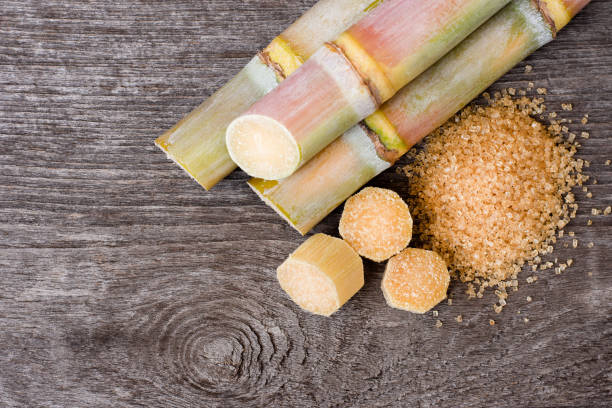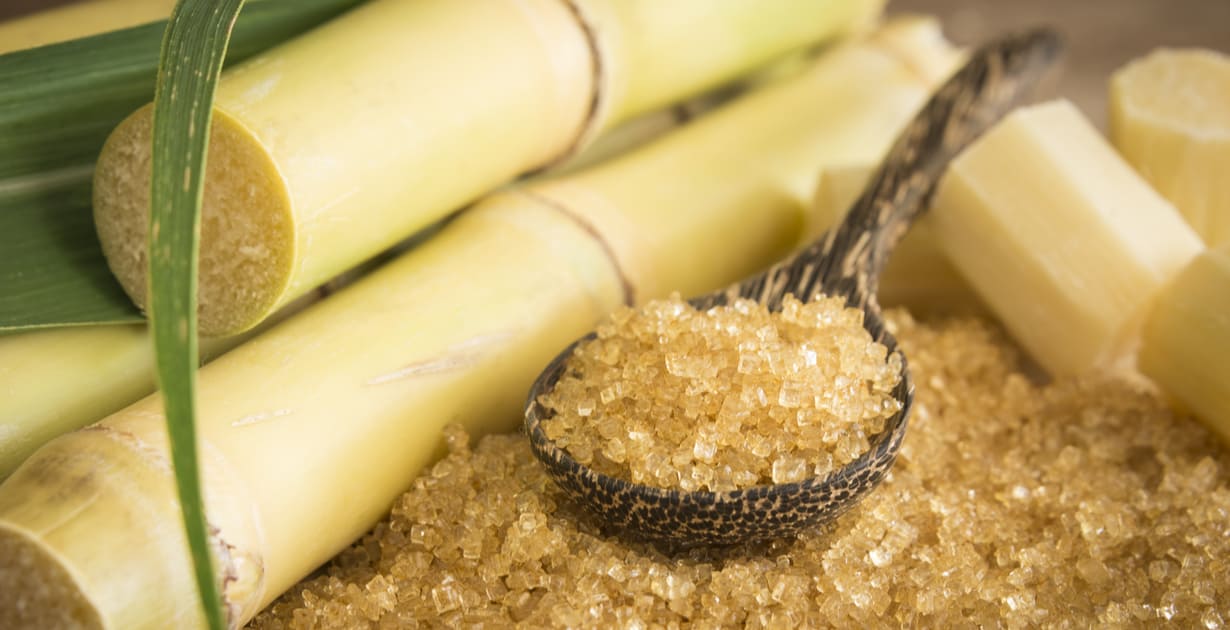Discover the Health Benefits of Sugar and Cane in Your Diet
Discover the Health Benefits of Sugar and Cane in Your Diet
Blog Article
Why Walking Stick Sugar Processing Chemicals Are Vital for Modern Sugar Refining
The duty of walking stick sugar processing chemicals in contemporary sugar refining can not be overemphasized, as they are indispensable to improving both the effectiveness of extraction and the general top quality of the end product. Agents such as phosphoric acid and details flocculants are used to remove contaminations, causing sugar that not only satisfies consumer expectations but additionally abides by sector criteria. The implications of these chemicals expand beyond top quality, touching upon market characteristics and environmental considerations. sugar and cane. This raises important inquiries concerning the sustainability of such techniques and their effect on the future of sugar manufacturing.
Role of Handling Chemicals
The effectiveness of walking stick sugar handling hinges significantly on the tactical application of processing chemicals. These chemicals play a pivotal role in boosting the effectiveness and high quality of sugar extraction and refining. From the preliminary stages of juice removal to the final filtration actions, handling chemicals help with numerous vital procedures.
In the extraction phase, chemicals such as phosphoric acid and calcium hydroxide are utilized to optimize the information procedure, assisting to remove pollutants and put on hold solids from the walking stick juice. This not just improves the yield yet likewise makes sure the quality of the final item. Furthermore, agents like flocculants aid in the fast settling of contaminations, therefore simplifying the general procedure.
As the handling advancements, chemicals are made use of in decolorization and condensation phases. Triggered carbon and ion exchange materials offer to remove shade and odor, ensuring that the refined sugar satisfies customer high quality criteria. Ultimately, the role of processing chemicals extends past operational efficiency; they substantially affect the sensory attributes of the end product, contributing to market competition. Hence, the precise choice and application of these chemicals are important for accomplishing optimum outcomes in walking stick sugar handling.
Secret Kinds Of Chemicals
Cane sugar handling relies upon a range of essential chemicals that assist in each stage of manufacturing. These chemicals play vital functions in clearing up, bleaching, and detoxifying the sugar removed from walking stick.
One primary group of chemicals includes flocculants, such as polyacrylamide, which aid in the information procedure by advertising the gathering and settling of impurities. In addition, calcium hydroxide is typically utilized to neutralize level of acidity and help in the elimination of non-sugar elements.
Lightening agents, such as turned on carbon and sulfur dioxide, are utilized to decolorize the syrup, resulting in a clearer last product. These chemicals aid eliminate color substances that may affect the sugar's appearance and bankability.
Additionally, phosphoric acid acts as a pH regulatory authority during the processing stages, making sure optimum conditions for the chemical activities associated with sugar removal and filtration.
Other essential agents include edta (ethylenediaminetetraacetic acid), which chelates metal ions that might catalyze unwanted reactions, and sodium hydroxide, which aids in pH control throughout the refining procedure. Jointly, these chemicals boost performance and ensure a top quality walking stick sugar product.
Benefits for Sugar Quality
Commonly forgotten, using specific handling chemicals dramatically enhances the general quality of cane sugar. These chemicals play an essential role in refining processes, making certain that the end product satisfies rigorous market requirements visite site for pureness and taste.

Furthermore, processing chemicals aid in achieving a consistent granulation and appearance, which are vital for consumer approval. By managing the crystallization procedure, these chemicals make certain that the sugar crystals develop uniformly, leading to an extra appealing product that dissolves well in numerous applications.
Moreover, making use of these chemicals can boost the service life of cane sugar by lessening dampness absorption and microbial development. Overall, the calculated application of processing chemicals is vital for providing top quality walking stick sugar that fulfills consumer expectations and sector demands.
Environmental Effect Factors To Consider

Furthermore, the energy-intensive nature of sugar refining, worsened by chemical use, typically results in raised carbon emissions. This contributes to environment modification and elevates worries regarding the sustainability of existing refining practices. In addition, the sourcing of these chemicals may involve techniques that intimidate biodiversity, such as monoculture farming, which decreases the resilience of agricultural ecosystems.

To reduce these effects, sugar refiners are increasingly discovering lasting alternatives and adopting best methods that decrease chemical use. Executing extensive environmental monitoring systems can aid ensure that the refining process aligns with environmental requirements and advertises biodiversity. Eventually, a well balanced technique that focuses on both sugar high quality and ecological stewardship is crucial for the lasting stability of the sugar sector.
Future Trends in Refining
As the sugar industry grapples with the ecological obstacles associated with conventional refining methods, innovative approaches are arising to boost both performance and sustainability. One considerable pattern is the adoption of environment-friendly chemistry principles, which focus on the usage of safe, biodegradable processing chemicals. This change not just lessens ecological impact however also addresses customer demand for cleaner production methods.
Another promising growth is the application of advanced purification modern technologies, such as membrane layer separation and adsorption procedures. These methods improve the clarity and high quality of the sugar while minimizing the volume of wastewater created throughout refining. Furthermore, the integration of electronic technologies, consisting of IoT and AI, is transforming operational effectiveness by enabling real-time surveillance and predictive maintenance, therefore reducing resource waste.
Additionally, the use of by-products from sugar refining, such as bagasse and molasses, is getting traction. These materials can be exchanged biofuels or value-added items, adding to a round economy within the market. Jointly, these patterns indicate a change towards more lasting techniques that not only boost operational efficiency however additionally align with worldwide sustainability objectives, ensuring the future feasibility of sugar refining.
Verdict
Cane sugar processing chemicals are crucial in modern sugar refining, substantially boosting the efficiency and high quality of sugar removal. The tactical use of these chemicals not only enhances the pureness and flavor of the end product however likewise guarantees regular formation and texture. As the industry increasingly prioritizes sustainability, the fostering of environmentally-friendly handling agents is likely to Check Out Your URL shape future patterns in refining, inevitably leading to better products and prolonged life span for customers.

Inevitably, a balanced approach that prioritizes both sugar quality and environmental stewardship is vital for the lasting stability of the sugar industry.
Cane sugar processing chemicals are necessary in modern sugar refining, dramatically improving the effectiveness and high quality of sugar removal.
Report this page